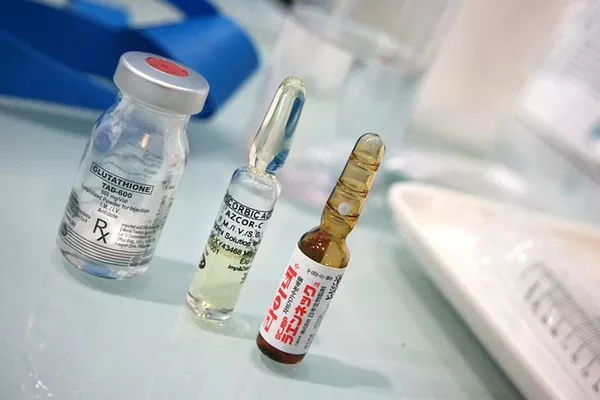The prostate, a small gland located beneath the bladder, plays a crucial role in male reproductive health. As men age, the risk of prostate issues increases, making it imperative to explore natural approaches to support prostate health. Among the myriad of options, herbs have gained attention for their potential benefits. In this article, we will delve into the realm of herbal remedies, aiming to answer the pressing question: Which herb is best for prostate health?
Understanding the Prostate: A Brief Overview
Before delving into herbal solutions, it’s crucial to understand the prostate’s function and the potential issues that can arise. The prostate is responsible for producing seminal fluid, which nourishes and transports sperm. As men age, the prostate may become enlarged, leading to conditions such as benign prostatic hyperplasia (BPH) or even prostate cancer. These conditions can impact urinary function and overall quality of life.
See Also:10 Natural Prostate Shrinking Supplements
Herbs and Prostate Health: A Comprehensive Approach
Saw Palmetto: A Time-Tested Remedy
Saw Palmetto (Serenoa repens) has long been heralded as a go-to herb for prostate health. Native to the southeastern United States, the small palm tree produces berries rich in phytosterols and fatty acids. Studies suggest that saw palmetto may help alleviate symptoms of BPH by inhibiting the production of dihydrotestosterone (DHT), a hormone linked to prostate enlargement. However, it’s essential to note that while research is promising, more extensive studies are needed to confirm its efficacy.
Stinging Nettle: Nature’s Anti-Inflammatory Ally
Stinging nettle (Urtica dioica) is another herb that has piqued interest in the realm of prostate health. Rich in vitamins and minerals, stinging nettle possesses anti-inflammatory properties that may alleviate symptoms associated with an enlarged prostate. Some studies suggest that combining stinging nettle with saw palmetto might have a synergistic effect, enhancing their potential benefits.
Pygeum Africanum: Traditional Wisdom in a Modern Context
Derived from the bark of the African plum tree, Pygeum africanum has been a staple in traditional medicine for centuries. It contains compounds with anti-inflammatory and anti-androgenic properties, making it a potential contender for supporting prostate health. Some research indicates that pygeum may reduce BPH symptoms and improve urinary flow. However, as with other herbs, more rigorous studies are necessary to establish its efficacy conclusively.
Turmeric: Harnessing the Power of Curcumin
While not traditionally categorized as a prostate-specific herb, turmeric (Curcuma longa) has gained attention for its active compound, curcumin. Renowned for its anti-inflammatory and antioxidant properties, curcumin may play a role in reducing inflammation in the prostate. Incorporating turmeric into the diet or taking curcumin supplements could be a valuable addition to a holistic approach to prostate health.
Green Tea: A Potent Elixir
Widely praised for its antioxidant content, green tea (Camellia sinensis) has been linked to various health benefits, including potential prostate support. The catechins in green tea, particularly epigallocatechin gallate (EGCG), exhibit anti-inflammatory and anticancer properties. While more research is needed to establish a direct link between green tea and prostate health, its overall positive impact on well-being makes it a worthy inclusion in a proactive lifestyle.
Holistic Lifestyle Practices for Prostate Health
While herbal remedies can be beneficial, they are most effective when integrated into a broader approach to prostate health. Here are some lifestyle practices that can complement herbal interventions:
Maintain a Healthy Diet:
Emphasize a diet rich in fruits, vegetables, and whole grains. Limit red meat and saturated fat intake, as these dietary choices may contribute to prostate issues.
Stay Active:
Regular exercise not only supports overall health but also promotes healthy prostate function. Aim for at least 150 minutes of moderate-intensity exercise per week.
Stay Hydrated:
Proper hydration is essential for urinary health. Ensure an adequate intake of water to support kidney and bladder function.
Manage Stress:
Chronic stress can impact prostate health. Incorporate stress-reducing practices such as meditation, yoga, or deep breathing exercises into your routine.
Regular Check-ups:
Consult with a healthcare professional for regular prostate screenings, especially if you are over the age of 50 or have a family history of prostate issues.
Conclusion: Navigating the Herbal Landscape for Prostate Health
In the quest for optimal prostate health, herbs offer a promising avenue. Saw palmetto, stinging nettle, pygeum africanum, turmeric, and green tea each bring unique qualities to the table. While research supports their potential benefits, it’s crucial to approach herbal remedies with a holistic mindset. Combining these herbs with a healthy lifestyle can create a synergistic effect, promoting overall well-being.
It’s essential to recognize that individual responses to herbal remedies may vary. Before incorporating any new supplements into your routine, consult with a healthcare professional, especially if you have existing medical conditions or are taking other medications. By embracing a comprehensive approach that includes herbs, lifestyle modifications, and regular medical check-ups, men can take proactive steps towards maintaining optimal prostate health as they age.
Related Topics:
What Are the Essential Supplements for Men’s Health?
When should you take a Hims pill?
Choosing the Best Multivitamin for Men Over 40


